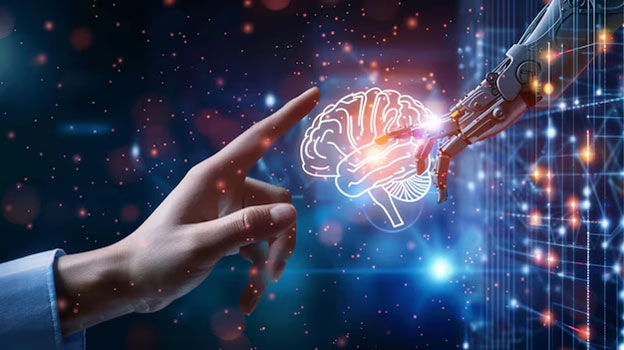
Artificial intelligence (AI) is ushering in a new era of work and learning. Tasks that once demanded hours can now be finished in minutes. As entire fields are beginning to change, professionals and instructors alike must reassess how they approach their work.
Nevertheless, we have seen this pattern before. Each new wave of technology reshapes our habits and redefines the skills that prove vital to success. The internet age offers us insight into understanding how today’s AI shift will unfold.
From the Internet Age to the AI Age
The internet age automated access to information and changed how it was shared, altering the job market. This shift reduced many roles and eliminated others altogether. In their place, entirely new classifications of jobs emerged.
For example, video rentals once required a trip to the local store. Now, we rent videos using on-demand digital streaming services. The internet has also given a space for independent content creators to reach global audiences.
Similarly, buying and selling stocks online has reduced the need for traditional stockbrokers. This expanded access created new opportunities for small investors.
These examples illustrate just a few of the ways the internet has transformed day-to-day life.
Now, the emergence of generative artificial intelligence (GenAI) has introduced new forms of intelligence and decision-making. Developers train large language models (LLMs) like ChatGPT on the vast body of information that the internet made available. Chatbots are quickly becoming our personal assistants, automating tasks that once required hours of effort.
Despite its convenience, we must remember that AI is not human and has its limits. It cannot replace emotional intelligence, ethical judgement, creativity, innovation, or the trust built through relationships. In addition, it struggles managing more complex, unstructured problems.
No matter how advanced AI becomes, human insight and contribution remain indispensable.
Lessons from the Internet Age
The internet age created a whole new class of jobs in the Information Technology (IT) sector. Among them were web developers, web designers, IT support specialists, cybersecurity specialists, data analysts, content creators, and cloud and app developers. These emerging roles required skills the workforce had not yet developed.
It is true that automation and the instant availability of information displaced many lower-skilled jobs. Yet, the new jobs that emerged offered much higher pay and greater opportunities than the jobs they replaced. To train skilled workers, higher education had to adapt to the realities of the internet age.
Now, higher education has to adapt to the new realities of the AI age.
New Realities of the AI Age
AI is currently augmenting jobs more than it is outright replacing them. Studies suggest that AI can boost productivity by as much as 40 percent. The demand for employees will be affected by this increased efficiency. However, some job roles are more vulnerable to disruption from AI than others.
We are already seeing this job shift at major companies. Salesforce, for example, has eliminated 4,000 customer-facing jobs that AI is performing with comparable results.
Some employers have attempted to fully transition to AI, only to find it is not so simple. In some cases, the shift has had negative ramifications, prompting many companies to bring back the human workers they had replaced.
The future is not entirely negative for technical professionals, however. It is predicted that the demand for software development professionals will increase, as AI use requires a more advanced skillset than before.
Applying AI Augmentation to Education
The key question we must ask is whether employers will hire professionals who are using AI to augment their work. I believe the answer is yes. Professionals with AI skills will outperform their peers in productivity, making them more in demand.
Recently, I met a woman who works in a doctor’s office that uses AI to streamline documentation. They implemented the system with appropriate guard rails to remain compliant with HIPAA regulations. She told me that they can now see 30% more patients, which has led to an increase in revenue.
Similar experiences are happening across our nation. Just as the internet age demanded new skillsets, the AI age is updating the necessary skills for success. AI augmentation will cause some jobs to fade and redefine others.
We need to act on that future now.
As educators, our job is to ensure our students are prepared. That begins with understanding how AI is augmenting professional work. From there, we must equip students with the knowledge and skills to enter this new AI age.
About the Author: Keith A. Morneau
Dr. Morneau is an experienced cybersecurity professional and the current Dean of Computer and Information Science at ECPI University. He has over 20 years of experience in cybersecurity education and has helped ECPI University become a National Center of Academic Excellence in Cyber Defense Education. Dr. Morneau is also an ABET CAC Commissioner and Team Chair for cyber programs and has secured several grants and published papers to advance cybersecurity education. His research interests focus on workforce issues and bridging the skills gap in cybersecurity professions.

